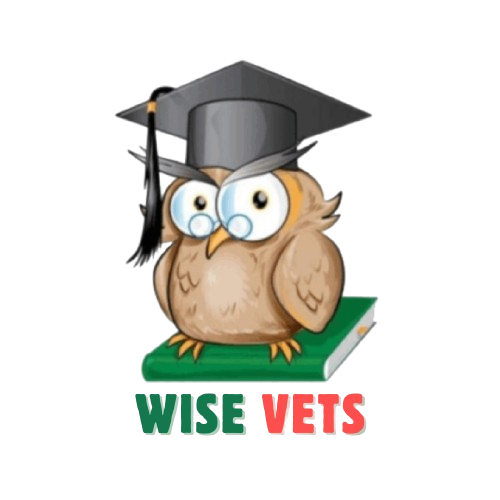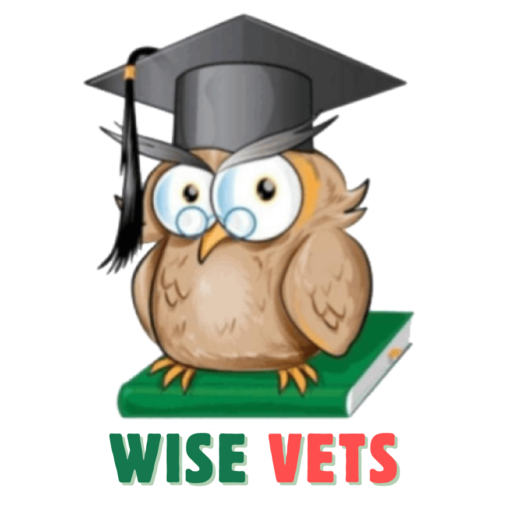The Role of Veterinary Doctors
Understanding the role of a veterinary doctor is crucial for anyone interested in the field of veterinary science. Veterinary doctors play a vital role in ensuring the health and well-being of animals. This section delves into their responsibilities and the essential skills and qualities they must possess.
Definition and Responsibilities
A veterinary doctor, often referred to as a vet, is a medical professional who specializes in diagnosing, treating, and preventing diseases in animals. Their responsibilities are diverse and can vary depending on their area of specialization. Some of the primary duties include:
- Conducting thorough clinical examinations of animals, gathering vital information such as heart rate, breathing, body temperature, and lymph node condition. They also evaluate any discomfort to assist in diagnosis (Quora).
- Collecting and analyzing samples of feces, urine, and blood to identify the presence of diseases or infections.
- Utilizing diagnostic tools such as X-rays, ultrasound scans, and other tests to narrow down and assist in diagnosis.
- Prescribing medications based on initial diagnoses and recommending further pathology lab tests if necessary (Quora).
- Performing surgical procedures when required.
- Advising pet owners on proper care, nutrition, and general health practices for their animals.
- Monitoring the progress of treated animals and adjusting treatment plans as necessary.
Essential Skills and Qualities
To be effective in their roles, veterinary doctors need to possess a unique set of skills and qualities. These include:
| Skill/Quality | Description |
|---|---|
| Compassion and Empathy | Essential for understanding and addressing the emotional needs of both animals and their owners. |
| Analytical Skills | Necessary for diagnosing complex medical conditions and interpreting diagnostic test results. |
| Manual Dexterity | Important for performing precise surgical procedures and handling small tools. |
| Communication Skills | Vital for explaining diagnoses, treatment plans, and care instructions to pet owners. |
| Problem-Solving Abilities | Crucial for developing effective treatment plans and adapting to unexpected challenges. |
| Attention to Detail | Important for accurately diagnosing and treating medical conditions. |
| Physical Stamina | Required for handling physically demanding tasks, such as restraining large animals or standing for long periods. |
Veterinary doctors must continually update their knowledge and skills through ongoing education and training. This ensures they remain proficient in the latest medical advancements and techniques. For more information on becoming a veterinary doctor, check out our articles on veterinary college and veterinary doctor course.
Training and Specialization
Aspiring veterinary doctors undergo rigorous training and specialization to ensure they possess the necessary skills and knowledge to treat a variety of animals.
Medical School and Specialization
The journey to becoming a veterinary doctor begins with enrolling in a veterinary college or vet science college. The coursework includes a comprehensive study of animal anatomy, physiology, pathology, pharmacology, and more. Students also gain hands-on experience through clinical rotations, allowing them to apply their knowledge in real-world settings.
Upon completion of their veterinary course, graduates must decide whether to enter general practice or pursue specialization. Specializing enables veterinarians to focus on specific areas such as surgery, internal medicine, dermatology, or exotic animal care. This decision can significantly influence their career trajectory and the types of cases they handle.
For those opting to specialize, additional training is required. This involves enrolling in a residency program, where they receive in-depth training in their chosen field. Residency programs are typically offered by accredited veterinary schools or hospitals and provide immersive learning experiences under the supervision of experienced specialists.
| Pathway | Description |
|---|---|
| General Practice | Treat a wide range of animals and conditions |
| Specialization | Focus on specific areas like surgery, dermatology, or internal medicine |
Duration of Specialty Training
The duration of specialty training for veterinary doctors can vary depending on the chosen field. Generally, it spans between three to five years, similar to the residency programs in human medicine (NHS Health Careers). This period includes intensive clinical training, research, and often, teaching responsibilities.
During their residency, trainees are expected to work long hours, sometimes up to 80 hours a week, to meet the rigorous demands of the program (Wikipedia). Despite the challenging schedule, this extensive training is essential for developing the expertise required to handle complex cases and perform advanced procedures.
Upon successful completion of their residency, veterinary doctors become eligible for board certification in their specialty. This certification is a testament to their proficiency and dedication to their field, and it opens doors to advanced career opportunities in clinical practice, academia, and research.
For more information about the training requirements and pathways, consider reading about veterinary doctor courses and veterinary medicine.
By understanding the training and specialization process, aspiring veterinarians can make informed decisions about their educational and career paths, ensuring they are well-prepared to contribute to the field of veterinary science.
Challenges Faced by Veterinary Doctors
Veterinary doctors encounter various challenges that can impact their professional and personal lives. These challenges often stem from patient management and demanding work schedules.
Patient Management Challenges
Managing animal patients presents unique challenges for veterinary doctors. Animals cannot communicate their symptoms or pain levels, which can make diagnosis and treatment more complex. This requires a high level of skill, patience, and intuition. Additionally, dealing with difficult patients who are uncooperative or aggressive can add to the stress.
| Challenge | Description |
|---|---|
| Communication Barriers | Animals cannot verbalize symptoms, making diagnosis challenging. |
| Aggressive Patients | Handling aggressive or uncooperative animals can be stressful. |
| Emotional Demands | Dealing with sick or injured animals and distressed pet owners can be emotionally taxing. |
Veterinary doctors must also navigate the expectations and emotions of pet owners, who can sometimes be demanding or emotionally distressed. This emotional labor can contribute to the overall stress experienced by veterinary professionals. For more insights into the training required to handle such challenges, refer to our article on veterinary course.
Work Schedule and Burnout
Veterinary doctors often work long shifts, sometimes extending to 12 hours or more (Snibbs). On-call hours can further limit personal time and increase stress levels. This demanding schedule can make achieving work-life balance difficult.
| Issue | Impact |
|---|---|
| Long Hours | Physical and mental fatigue from extended shifts. |
| On-Call Hours | Limited personal time and increased stress. |
| Unpredictable Shifts | Difficulty in planning personal activities. |
Burnout is a prevalent issue among veterinary doctors. The combination of long hours, emotional demands, and the stress of the profession can lead to mental, physical, and emotional exhaustion (Snibbs). Burnout can affect a doctor’s ability to provide effective care and their overall well-being.
To mitigate these challenges, it is crucial for veterinary doctors to prioritize self-care and take breaks when needed. Engaging in activities outside of work can also help maintain job satisfaction and emotional health. For more tips on managing work-life balance, check out our article on vet science colleges.
By understanding and addressing these challenges, veterinary doctors can better navigate their demanding profession and provide the best care for their animal patients.
Veterinary Doctors in Different Fields
Veterinary doctors, often referred to as veterinarians, work in various fields, each offering unique contributions to animal health and welfare. Two primary areas where veterinary doctors excel are clinical practice and academia.
Clinical Practice
Veterinary doctors in clinical practice focus on diagnosing, treating, and preventing diseases in animals. They work in animal hospitals, private clinics, and specialized practices. These professionals often deal with a wide range of species, from domestic pets like cats and dogs to exotic animals and livestock.
Key responsibilities in clinical practice include:
- Conducting physical exams and diagnostic tests
- Performing surgeries and medical procedures
- Prescribing medications and therapies
- Advising pet owners on proper animal care and nutrition
Veterinarians in clinical practice also play a crucial role in public health by ensuring that pets are vaccinated against diseases like rabies, which can be transmitted to humans. This not only protects the animals but also safeguards the community (AVMA).
| Clinic Type | Common Services Provided |
|---|---|
| Small Animal Clinic | Vaccinations, Spaying/Neutering, Dental Care |
| Large Animal Clinic | Herd Health Management, Surgery, Disease Prevention |
| Exotic Animal Clinic | Specialized Care, Nutritional Advice, Enclosure Recommendations |
Academia and Research
Veterinarians in academia instruct veterinary students, veterinary technology students, other medical professionals, and scientists. They are involved in teaching, conducting research, and providing animal care. Their work in academia is vital for training the next generation of veterinary professionals and advancing the field through scientific discoveries.
Responsibilities in academia and research include:
- Teaching veterinary courses and clinical skills
- Conducting research to advance veterinary medicine
- Publishing scientific papers and studies
- Developing continuing education programs for practicing veterinarians
Research veterinarians have made significant contributions to both animal and human health, such as controlling malaria, solving the mystery of botulism, and identifying the cause of West Nile virus infection.
| Area of Research | Contributions |
|---|---|
| Disease Control | Malaria, West Nile Virus, Botulism |
| Food Safety | Ensuring the safety of meat, poultry, and egg products |
| Public Health | Preventing zoonotic diseases like tuberculosis and rabies |
Veterinarians in regulatory medicine work to prevent the introduction of foreign diseases into the United States, supervise animal shipments, test for diseases threatening both animal and human health, and manage disease prevention campaigns. Their efforts ensure the safety of consumable animal products and contribute to overall public health.
For more information on pursuing a career in veterinary science, check out our articles on veterinary course and veterinary science.
Impact of Veterinary Doctors
Veterinary doctors play a crucial role in various aspects of society, extending beyond the care of animals. They contribute significantly to environmental protection and public health and safety.
Environmental Protection
Veterinary doctors are instrumental in protecting the environment through various initiatives and responsibilities. They help maintain the balance of ecosystems by ensuring the health and welfare of wildlife and domestic animals. Veterinarians are the only doctors educated to protect the health of both animals and people, addressing the health and welfare needs of every species of animal. They play critical roles in environmental protection, research, food safety, and public health (AVMA).
Veterinarians in regulatory medicine work to prevent the introduction of foreign diseases into the United States, supervise animal shipments, test for diseases that threaten animal and human health, and manage campaigns to prevent diseases like tuberculosis and rabies. They also ensure the safety of meat, poultry, and egg products for consumption (AVMA).
| Role | Responsibility |
|---|---|
| Regulatory Medicine | Preventing foreign diseases, supervising animal shipments, testing for diseases, managing disease prevention campaigns |
| Food Safety | Ensuring the safety of meat, poultry, and egg products |
Public Health and Safety
Veterinary doctors significantly impact public health and safety. They serve as epidemiologists, investigating animal and human disease outbreaks, ensuring food safety, and working in various agencies like the CDC, EPA, FDA, and DHS. Their roles include studying the effects of contaminants, evaluating product safety, and protecting public health from diseases like malaria, Ebola, and avian influenza (AVMA).
Veterinarians are crucial in managing zoonotic diseases, which are diseases that can be transmitted from animals to humans. By controlling and preventing these diseases, they help protect communities and ensure a safer environment for everyone. For more information on the critical role of veterinarians in public health, visit our page on veterinary medicine.
| Role | Responsibility |
|---|---|
| Epidemiology | Investigating disease outbreaks, ensuring food safety |
| Public Health Agencies | Studying contaminants, evaluating product safety, protecting against diseases |
Veterinary doctors, through their extensive training and dedication, make a substantial impact on both environmental protection and public health. Their contributions ensure a healthier and safer world for both animals and humans. For those interested in pursuing this impactful career, explore our resources on veterinary college and veterinary doctor course.
Licensing and Certification
State Boards of Medicine
In the United States, the licensing of veterinary doctors is governed by state boards of medicine. Each state has its own board responsible for the licensure and regulation of veterinary professionals. These boards ensure that veterinary doctors meet specific educational and professional standards before they are allowed to practice.
Veterinary doctors must pass a series of examinations to demonstrate their competency. The process typically includes the North American Veterinary Licensing Examination (NAVLE), which assesses a candidate’s knowledge and skills in veterinary medicine. Additionally, some states may have their own specific exams or requirements.
For more detailed information on the role of state boards and the specific requirements for each state, visit your respective state’s veterinary board website.
Training Requirements for Licensure
To become a licensed veterinary doctor, candidates must complete rigorous training and education. This includes obtaining a Doctor of Veterinary Medicine (DVM) degree from an accredited veterinary college or vet science colleges. The DVM program typically takes four years to complete and covers various aspects of veterinary science, including anatomy, physiology, pathology, and clinical practices.
After earning their DVM degree, veterinarians must complete additional training requirements for licensure. This often includes passing the NAVLE and completing a certain number of clinical hours under supervision. Some states may also require veterinarians to complete an internship or residency program to gain practical experience in their chosen specialty.
| Training Requirement | Duration |
|---|---|
| DVM Degree | 4 Years |
| Clinical Hours | Varies by State |
| Internship/Residency (if required) | 1-3 Years |
For veterinarians who wish to specialize further, additional certification may be required. This involves completing a residency program in a specific area of veterinary medicine, such as surgery, internal medicine, or dermatology. The duration of specialty training can vary, but it typically ranges from 2 to 4 years.
For more information on the veterinary doctor course and the specific training requirements in your state, visit your state’s veterinary board website or consult with your veterinary college.
Licensure and certification are crucial steps in ensuring that veterinary doctors are well-equipped to provide high-quality care to animals. By meeting these stringent requirements, veterinarians demonstrate their commitment to the profession and their dedication to the health and well-being of their patients. For more insights into the training and specialization in veterinary medicine, read our article on veterinary medicine.






